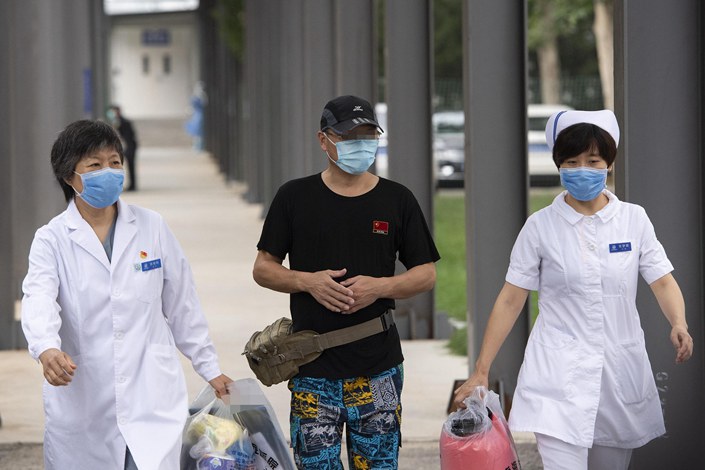Most Covid-19 Patients Could Suffer Long-Term Complications, Expert Warns

Most hospitalized Covid-19 patients will experience long-term repercussions from the disease after being discharged, including fatigue, muscle weakness and sleep disorders, according to a study by Chinese medical researchers.
Cao Bin, director of the center for respiratory diseases at China-Japan Friendship Hospital in Beijing, told an online medical conference last week that the new coronavirus could leave recovered patients with long-term after-effects.
Cao's team monitored 1,733 patients who were discharged from Wuhan Jinyintan Hospital (金银潭医院), one of those designated to treat critical patients in the outbreak epicenter in China from January to May.
The research found that more than 70% of the surveyed patients experienced at least one of many complications, such as fatigue, muscle weakness and sleep disorders, plus joint pain, lack of appetite, anxiety, depression and difficulties in walking.
Nearly 30% of the patients failed a six-minute walking test, an exercise used to assess aerobic capacity and endurance, and more than 20% reported psychological complications, according to the research. Furthermore, half of the recovered patients tested abnormal on at least one item on their CT scan.
The research was published as new Covid-19 cases have been surging rapidly in many countries, with the global tally surpassing 65 million and deaths reaching 1.5 million as of Friday.
At the medical conference, Cao called on his colleagues to pay close attention to the long-term after-effects of Covid-19 in an effort to guide medical treatment and the development of vaccines and drugs.
Covid-19 can result in body cells dying and the immune system being attacked, which will likely cause further harm, Cao said. In the early stage of the outbreak in Wuhan, most patients in a critical condition displayed signs of multiple organ failure.
The research also showed that patients were more likely to be reinfected if their antibodies decreased at a faster rate. Thus, they should be regarded as high-risk people who warrant close monitoring in the future, Cao added.
Cao said that his team has been planning to conduct a one-year follow-up experiment with recovered patients.
The post-viral effects are not unique to Covid-19. The findings echoed previous research results for Severe Acute Respiratory Syndrome (SARS) and Middle East Respiratory Syndrome (MERS). All three diseases are caused by coronaviruses.
Studies have shown that people suffered from physical and mental health problems after recovering from SARS or MERS. After one year in recovery from SARS, about half of the patients still reported breathing problems, a Canadian report said. Only 13% of respondents said they had no symptoms after recovery.
Research by the Chinese University of Hong Kong into 86 patients in recovery from SARS over 18 months also showed adverse impacts on lung conditions, athletic ability and life quality.
A South Korean study found that 42.9% of patients who recovered from MERS had post-traumatic stress disorder. The study said the disease had long-term effects on people’s psychological health.
Download our app to receive breaking news alerts and read the news on the go.







